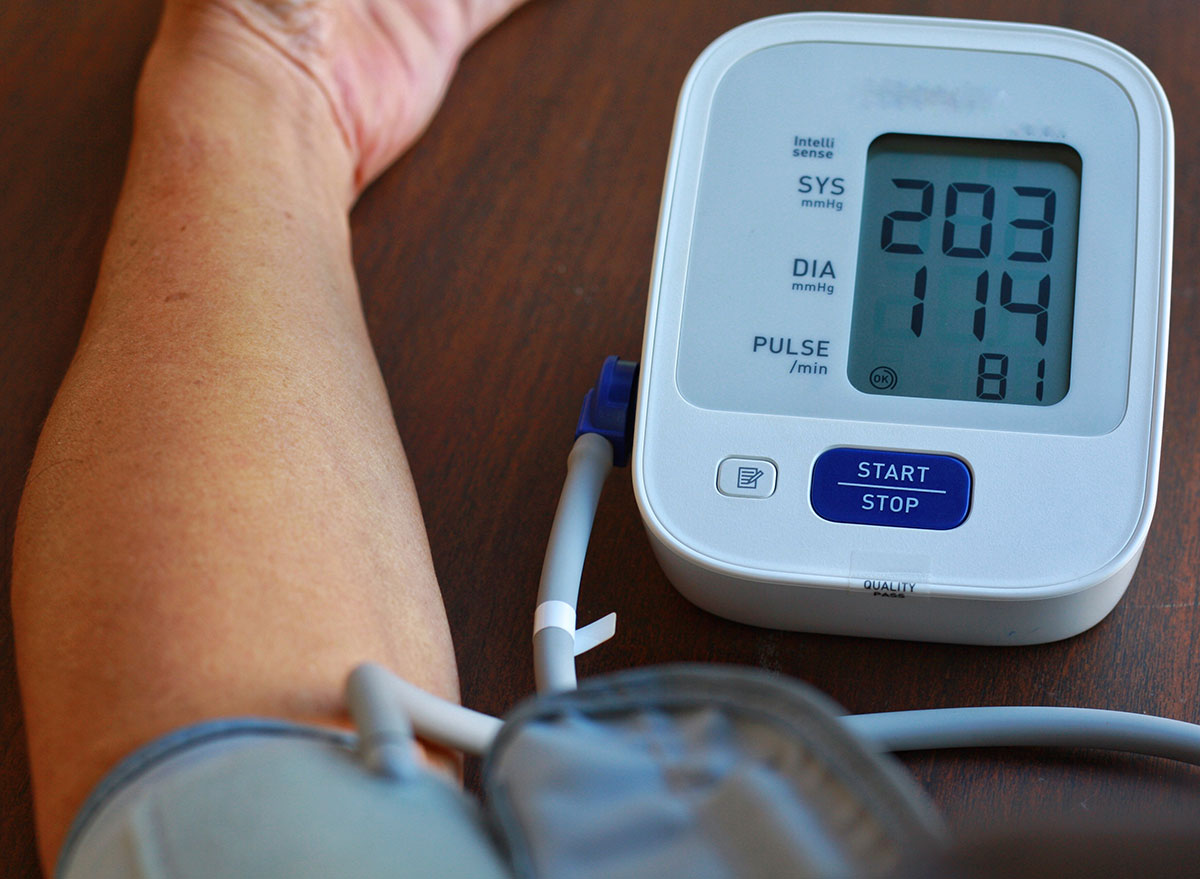The Best and Worst Diets for Heart Health

How often do we think about our heart health? We’re constantly told to listen to what our heart tells us, whether it’s considering a new job, a new relationship, or any other major life change—our hearts are there to guide us. But are we taking good care of the organ that does so much for our bodies, especially when it comes to making sure we have a heart-healthy diet? A variety of lifestyle factors contribute to your cardiovascular well-being, from exercising regularly, managing stress, to getting plenty of sleep. But perhaps the greatest impact you have on your heart health is with the foods you eat.
“Diet has a huge impact on heart health,” says Kate Patton, a dietitian with the Cleveland Clinic’s Heart & Vascular Institute. “Having a healthy heart means you should manage all your controllable risk factors for heart disease, including tobacco use, high LDL cholesterol, low HDL cholesterol, high triglycerides, uncontrolled hypertension, uncontrolled diabetes, physical activity level, obesity, waist circumference, and uncontrolled stress. Your diet has an impact on the majority of these factors.”
That means the key to your cardiovascular well-being might just be found in your kitchen. If you’re not sure how to take care of your ticker, then read on for the best and worst diets for heart health, according to three RDs. Now, the next time you head out grocery shopping, you can stock up on plenty of foods for the perfect heart-healthy diet for you.
The 5 Best Diets for Heart Health
The DASH Diet

DASH is an acronym for “Dietary Approaches to Stop Hypertension,” which means high blood pressure. High blood pressure is a major risk factor for heart attack and stroke, which is why managing yours may reduce your risk of cardiovascular issues.
The DASH diet emphasizes limiting your intake of salt and saturated fats and eating heart-healthy foods, like vegetables, fruits, whole grains, nuts, legumes, and low-fat dairy. Together, these foods provide a number of nutrients that have been linked to lower blood pressure, namely potassium, magnesium, and calcium.
“Potassium plays a key role in helping your heart beat in rhythm, and adequate levels may help lower blood pressure,” says Toby Smithson, MS, RDN, LD, CDE, founder of Diabetes Every Day, and author of Diabetes Meal Planning and Nutrition for Dummies. “Magnesium helps with the regulation of blood pressure, and calcium also plays a role in lowering blood pressure. Therefore, including foods that are high in potassium, magnesium, and calcium can help with lowering or maintaining blood pressure.”
And because the DASH diet closely resembles general recommendations for healthy eating, this type of eating plan is also recommended by RDs for maintaining overall health, in addition to helping you lower your blood pressure with the right foods.
The Anti-Inflammatory Diet

Research has found that chronic inflammation may increase the risk of developing cardiovascular issues. That’s because inflammation contributes to the accumulation of plaque inside the body’s arteries, and plaque is a risk factor for heart attacks and strokes.
The idea of the anti-inflammatory diet is pretty straightforward: to embrace foods that have been shown to reduce inflammation, and avoid foods that may provoke inflammation in the body.
The key is “including phytonutrients and antioxidant sources,” says Maxine Yeung, MS, RD, CPT, CWC, a registered dietician, personal trainer, and founder of The Wellness Whisk. That means loads of fresh produce (both vegetables and fruit), as well as healthy fats and complex carbohydrates. It also means reducing or avoiding animal proteins, simple carbohydrates, and processed foods.
As a bonus, limiting inflammation throughout your body may also reduce your risk of other chronic conditions, like cancer, arthritis, depression, and Alzheimer’s. And there are plenty of inflammatory foods that cause weight gain you should stay away from, too.
The Mediterranean Diet

The Mediterranean diet has been popular among heart-conscious eaters for a while, and there’s some proof that it’s successful. For example, a recent study conducted by a team of researchers in Boston found that those who followed the Mediterranean diet reduced the onset of heart disease by a whopping 25 percent.
“This diet focuses on primarily eating plant-based whole foods; lots of fiber from vegetables, fruits, whole grains, nuts, and legumes; choosing healthy fats over saturated fats; and limited red meat and salt,” says Yeung, who is a proponent of the Med diet. “The Mediterranean diet is also very sustainable, as it doesn’t overly restrict any foods.”
As with the DASH diet, the Mediterranean diet is a healthy eating plan for pretty much anyone. Among other benefits, it’s been proven to reduce inflammation and lower risk of chronic diseases, including those that affect the brain.
A Vegetarian Diet

Vegetarians and those who rarely eat meat may have a leg up on avid carnivores when it comes to heart health. “Reducing consumption of meat can help reduce cholesterol and lower your risk for cardiovascular disease,” says Smithson.
And because a vegetarian’s eating plan is plant-based, by nature it includes plenty of anti-inflammatory foods and nutrients that are beneficial to your heart and your overall health. In addition to loading up on fruits and vegetables, Smithson says vegetarians can enjoy plenty of protein sources in the form of beans, tofu, tempeh, and nuts or nut butters.
If you simply can’t go cold turkey on the turkey (and other meats), then consider adopting a “flexitarian” eating plan, as Smithson calls it. This is primarily a vegetarian diet, but it allows for the occasional consumption of lean meats.
A High-Fiber Diet

“From my experience, fiber is one of the most lacking components of people’s diets, and yet there are so many health benefits [to eating fiber],” Yeung says.
Fiber helps lower LDL cholesterol (i.e. “bad” cholesterol), maintain more stable blood sugar levels, and manage weight—all of which improve heart health. In fact, a high-fiber diet has been linked to a reduced risk of dying from cardiovascular disease and cancer.
Unfortunately, according to Yeung, “the average American eats less than half the U.S. dietary recommendations, which are actually less than the World Health Organization’s recommendations.” For those wondering, your total dietary fiber intake should be 25 to 30 grams a day from food.
The 5 Worst Diets for Heart Health
A High-Sugar Diet

It’s probably not news to you that consuming too much sugar has been linked to coronary disease and heightened inflammation.
The bad news is, “the average American eats about 17 teaspoons of added sugar per day, which is over twice the upper recommended amount,” Yeung says.
High sugar consumption can also lead to weight gain, which has cardiovascular health consequences, too. As Patton explains, “excess simple sugar tends to be stored as belly fat. Carrying excess weight in your abdominal area… [increases the] risk of heart disease.”
The “Standard American Diet”

This isn’t a formal diet, of course—it’s just how the average U.S. adult eats. The “standard American diet,” as Yeung calls it, is loaded with sugar and is woefully low in fiber. “The average American eats… about 15 grams of fiber per day, which is about half of the recommended amount,” she says.
Not surprisingly, Yeung says eating tons of sugar and not enough fiber contributes to poor heart health. Because fiber is essential for keeping bad (i.e. LDL) cholesterol in check, maintaining stable blood sugar levels, and managing weight, a diet with inadequate fiber intake may contribute to high levels of LDL cholesterol, weight gain, and erratic blood sugar levels. And all of that can increase your risk of cardiovascular issues. Plus, keeping the bad cholesterol at bay while increasing the good (i.e. HDL) kind of cholesterol is possible.
The Ketogenic Diet

The Ketogenic diet—or Keto diet, as it’s known colloquially—has taken the health scene by storm. It’s intended primarily for weight loss, and advocates for a low-carb, moderate protein, and high-fat approach to eating.
But because the Keto diet is relatively new to the nutrition world, its impacts on heart health are not definitive. “Some studies show improvements in heart health risk factors, such as cholesterol, and others show negative impacts,” Yeung says. This may be partly because while on the Keto diet, it’s possible to mistakenly consume inflammatory foods and to miss out on important nutrients.
Because a lot of questions about the relationship between Keto and heart health still need to be answered, Yeung cautions against employing this eating style in the name of your heart. “We do not know the long-term effects,” she says. “For now, I would not recommend this diet for heart health.”
A High-Protein Diet

Many people adopt a high-protein diet because it helps them feel more satiated after meals, which can cut down on snacking and facilitate weight loss. Other folks may consume large quantities of protein as part of a strength training routine.
But when it comes to heart health, consuming too much protein is not ideal, especially if that protein is coming from red meats or other food sources that are high in saturated fats. “High-protein diets can cause cholesterol to rise due to the higher concentration of saturated fat and cholesterol,” Smithson says.
A high-protein diet may also restrict the consumption of carbohydrates to the point that it reduces fiber intake to problematic levels. And, as you now know, low fiber could mean issues for your heart health.
Any Unsustainable Diet

Ultimately, one of the worst diets for heart health is one that you can’t stay on.
“Eating a specific way and then stopping can undo all the good you did while dieting,” Patton says. “That is why I encourage more of a Mediterranean-style or DASH-style eating pattern, because they are sustainable lifelong.”
Yeung concurs, adding that if you’re only able to sustain a certain diet for a short period of time, it won’t have a long-term positive impact on your heart. “It’s best to find a diet that includes heart-healthy food and works well for your lifestyle,” she says.